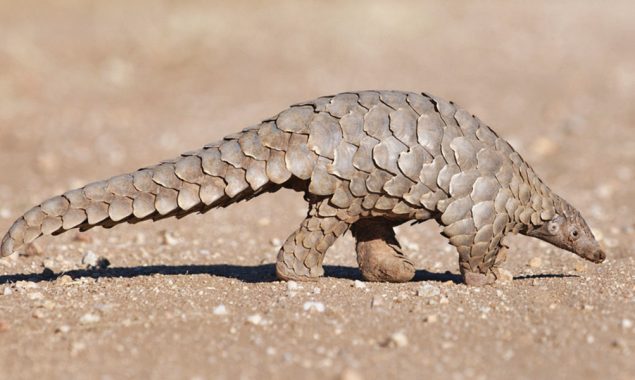Synopsis
Massive public awareness is imperative to protect the animal from poaching, human attacks

ISLAMABAD: Wildlife experts have urged the government to start massive public awareness campaign to protect endangered pangolins from poaching and human attacks.
Also known as the scaly anteater, the pangolin is the most trafficked mammal in the world. The Margalla Hills National Park (MHNP), home to some 38 mammals, 27 reptiles and over 600 plant species, also serves as the habitat of the endangered scaly anteater. However, it faces threats of poaching, hunting and human conflicts, manager operations Islamabad Wildlife Management Board (IWMB) Sakhawat Ali told APP.
He said that the IWMB officials had confiscated around six pangolins from poachers and released them in the wild. The IWMB official informed that more protection led to preservation and then to conservation that helped to completely protect the environment. Overpopulation of any wild species needed management which was the fourth step of the abovementioned steps, he said.
Pakistan Wildlife Foundation (PWF) vice chairman Safwan Ahmed said that there were eight species of pangolin, four each in Asia and Africa and it was not found anywhere else in the world. All species of pangolins are endangered. The Chinese pangolin is near extinction or critically endangered, he highlighted.
Myths abound
A PWF survey in 2019 regrettably found no species of pangolins in their habitats in Karak and D.I. Khan that were searched thoroughly. During the survey, he said, there were many myths encountered by the foundation.
In Khyber Pakhtunkhwa, there is a myth that pangolins eat human infants. In Punjab, as per the myth, the people call it sinister and believe that it creates burrows in graves.
He pointed out that pangolins were only found in the Potohar region of Punjab as in central Punjab intensive cultivation has completely erased rodents and reptiles of many species.
Interestingly, he said one myth claimed that if one hung a pangolin’s scales around a cow or buffalo’s neck it would never lose its fertility and protects the calf from wild animals’ attacks.
In Sindh, it was considered ominous and its scales were used for black magic and conjuring to satiate envious nature of people whereas in Balochistan, women with infertility were given grinded scales to bear children, he added.
To a question, he said in Islamabad he frequently witnessed pangolins twice a year and also received phone calls from volunteers in F-7, F-8 and G-9 sectors to report the presence of pangolins. They were mainly residing in these sectors due to nullahs and old vegetation suitable for their survival, he added.
‘An innocent animal’
He further said that most people did not dare touch a pangolin due to its scary appearance with the perception that it might harm their life which is completely wrong. “It’s a very innocent animal. My five-year-old daughter picks up a pangolin in her lap.” He remarked
He informed that the Indian pangolin species was found throughout the country except Gilgit-Baltistan (GB).
Safwan mentioned that the scales of pangolin were used by the mammal for its defence and that was why scaly anteaters eat termites and ants as their diet.
In the past two decades, he said pangolins were overhunted globally for traditional Chinese medicine. Pangolin’s soup was allegedly consumed by the Chinese elite as a cure to many diseases but it was not proven scientifically.
He said that initially, the gypsies used to poach and sell it for Rs20,000 to smugglers who used to sell it for much higher prices.
He regretted that the regional bodies established to stop pangolins’ poaching, mainly in South Asia, have unfortunately failed to achieve their goal.
Commenting on the ecological role of pangolins in the environment, he said Potohar forests were predominantly of acacia modesta or phulai trees that were ill due to the presence of termites and absence of pangolins.
The remedy therefore is to develop breeding centres at every 10 square kilometres or place two pairs of pangolins every 100 square kilometres. Also, there should be a breeding and rehabilitation centre to protect and increase its number, he added.
Moreover, he said, mass awareness on the harmless nature of pangolins should be created to protect this important vanishing species of scaly anteaters.—APP
Read More News On
Catch all the Pakistan News, Breaking News Event and Latest News Updates on The BOL News
Download The BOL News App to get the Daily News Update & Follow us on Google News.




